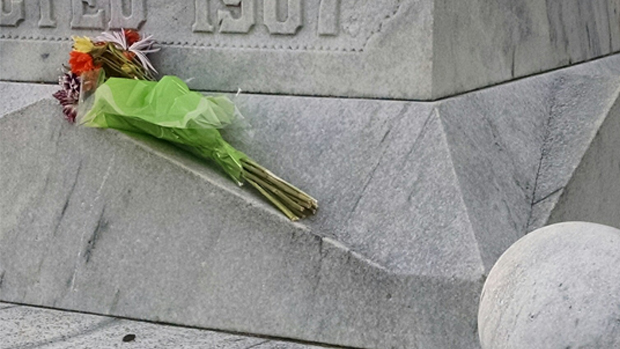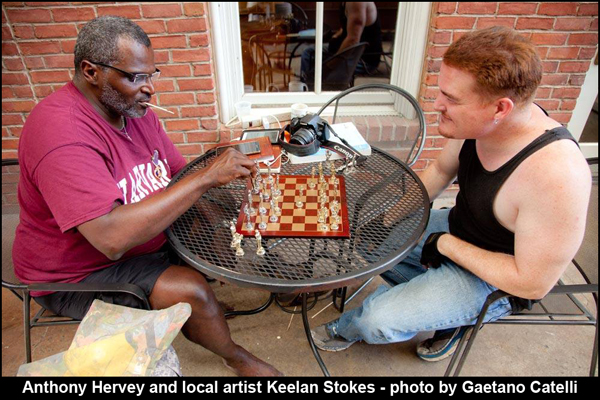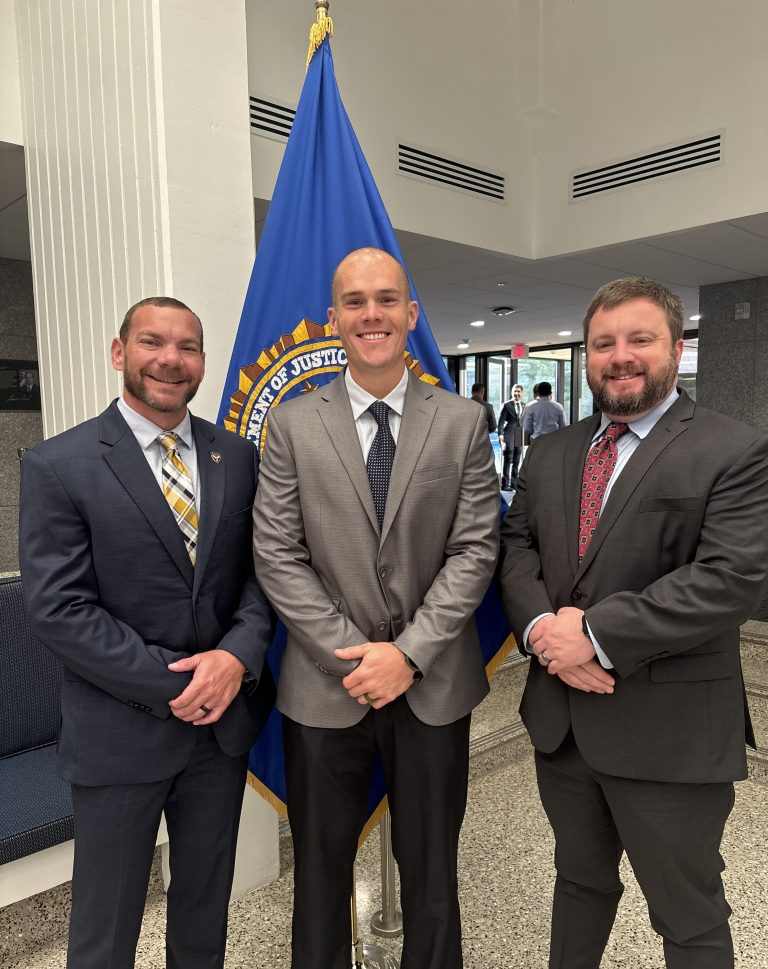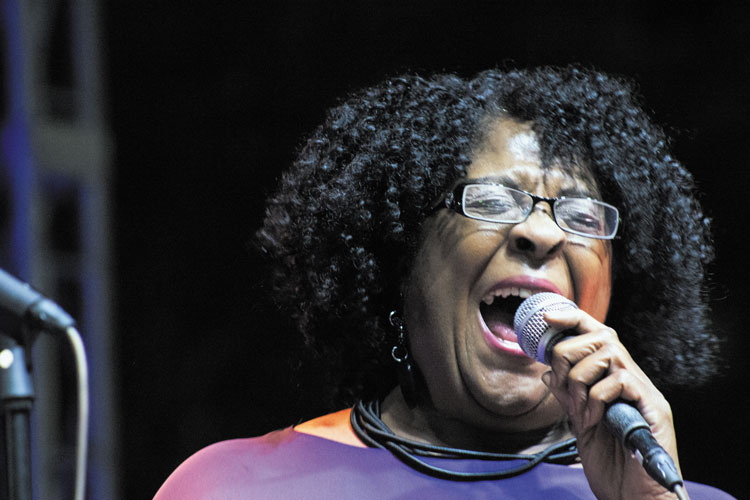
GEDSC DIGITAL CAMERA
At first, someone told me he was killed because a car of Klansmen ran him off the road. A few hours later, it’s reported that a car load of Black Panthers were the ones who chased him to his death. Either way, I couldn’t help but think it was a perfectly symmetrical ending to his life, almost too symmetrical, but at least he died in motion and with his boots on, even if what he was fighting for was the wrong Revolution.
I used to call him “Black Socrates” because he was always stirring up trouble by causing people to think, even if they didn’t want to think. The encounters almost always resulted in a shouting match, and on a few occasions, fist fights.

During a rehearsal of a Black Radicals reading I was putting on for VOX, I had to stand between him and the rest of the cast, who wanted to kill him. That was the very spirit we were trying to evoke, but they wanted him out of the show and out of the building. I defended him and told him to calm down and not threaten the rest of the cast members. After that, he was faithful, and I didn’t have any trouble with him for the rest of the season. He read from a Sartre essay about the evils of Colonialism in Northern Africa. It was wonderful and historic. Never had such material been read in a public space in Oxford, Mississippi.
He seemed to cause trouble wherever he went, which I liked. I was indifferent to the Confederate flag stuff, realizing it was a smoke screen to avoid the real issue of politics, economic inequality. I do remember with great fondness how impressed he was with a Huey Long quote I brought to his attention. While running for Governor of Louisiana in 1928, Long was often attacked for his neutral stance on black racial issues. He had to be careful how he responded to the media on race issues because there was no way of getting elected without at least some support from the mostly racist yeomen of North Louisiana.
When asked where he stood on the issue of Black Equality, Long brilliantly responded (considering the context of the times) that “The Negro issue is a false issue. The real issue is Standard Oil.” The quote put a big smile on Anthony’s lips.
For most of the time I knew him, we mostly exchanged ideas and books; we almost never spoke about anything personal. We read passages from Marx and Hegel mostly, and would discuss for hours how these ideas and principles could be converted into revolutionary action. We never talked about the Civil War or the Confederate flag. Although I enjoyed our intellectual discussions, I mostly just liked his attitude and demeanor—I never remember seeing him down-in-the-dumps. He always had a great sense of Joy about him that seemed missing from most of the other people in the café. He never seemed frightened of anything, that impressed me, and he in turn was impressed with me because I never budged an inch on any issue I got behind.
Despite the Confederate flag dross, I liked Anthony. There was something comforting about being around him—I liked him, even though he owed me $50 for almost two years and would not return my copy of Pedagogy of the Oppressed no matter how many times I asked for it back.
Just last week, I convinced him to wrap himself in the Communist Flag instead of the Confederate Flag—it arrived in the mail two days ago and I was going to give it to him today, but now I cannot.
What could-have-been is a cold place to be. ![]()
Related Articles:
“Death of the Black Confederate: Mysterious Circumstances Surround the Passing of Anthony Hervey” by Newt Rayburn
“Anthony Hervey’s Funeral Set for Sunday, August 2nd in Oxford, Mississippi” by TLV News
“‘Black Confederate’ Anthony Hervey Funeral Procession Draws Hundreds in Oxford, Mississippi” by TLV News
–




Thank you for this honest account. It rings true of the Anthony I knew, years ago in Oxford and in London. RIP.
Typical anti Southern drivel.